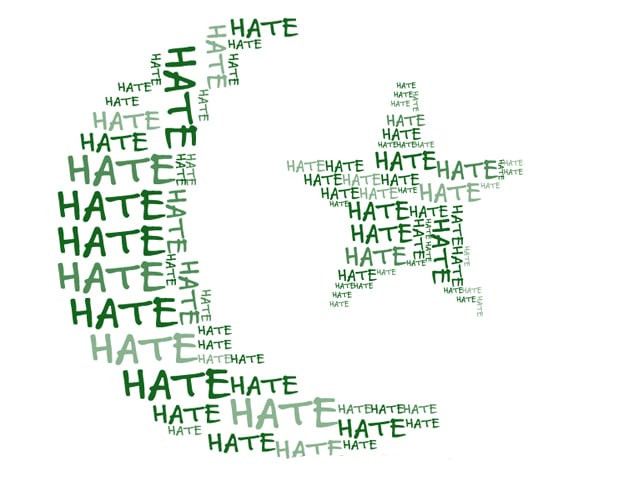School curricula: ‘Hate content in textbooks has increased since 2009’
National Commission for Justice and Peace report releases report on Thursday.

Hate content in textbooks used in the Punjab has increased from ‘45 lines in 2009 to 122 in 2012’, a content analysis report published by the National Commission for Justice and Peace (NCJP) said on Thursday. The report titled Education or Promotion of Hatred was distributed at a conference, Biases in Textbooks and Education Policy, organised by the NCJP on Thursday.
The study examined 22 textbooks for the academic year 2012-13 in the Punjab and Sindh from classes 1 to 10.
The report says that one of the 30 chapters in the general knowledge textbooks for class 1 has content advocating intolerance. It says there has been a ‘marked increase’ in hate content in the curricula of classes 7 to 10.
In 2009-2011, it says, 12 chapters in various textbooks at these levels contained hate material. The number of such chapters has increased to 33.
As many as seven lessons with hate content are part of the 8th class Urdu curriculum for 2012-2013, compared to none in 2009, it says. It also says said that the number of such lessons in the Pakistan studies textbooks for classes 9 and 10 had increased to three in 2012 from none in 2009. It says that hate lessons that were part of the class 6 social studies and class 7 Islamiat books in 2009 had been excluded from the 2012 curricula.
Speaking at the launch Dr Mehdi Hasan, the School of Media and Communication dean at the Beaconhouse National University, said Muslims posed a greater danger to their fellow Muslims then to non Muslims in Pakistan.
He said, seminaries, where less than 4 per cent of the Pakistani children studied in Pakistan, did not pose a greater threat than schools, where hate material was being taught to students as young as to be in class 1.
He said, “Teaching students that a certain religion teaches ‘bad things’ is not just a violation of human rights but also a severe ethical violation.”
Dr Hasan said that a religious state was not a democratic state. He said that Pakistan had been established through a democratic process.
Wajahat Masood, an assistant professor at BNU, said future generations will likely judge the present as ‘sub-human and insensitive’.
He said hate content and distortion of history was evident in curricula as well as in Pakistani literature. Masood said that sectarian and religious discrimination should be recognised as ‘vulgar’ and discouraged.
Irfan Mufti, deputy director at the South Asia Partnership Pakistan, said that hate content in school syllabi spoke volume of an intolerant society.
“Hate content will turn our children into intolerant individuals,” he warned.
Dr Baela Raza Jamil, director of programmes at the Idara-i-Taleem-O-Aagahi highlighted the Compulsory Education Act that was passed recently by the Senate for Islamabad. She said the Act had failed to mention religion as a reason for which no discrimination would be allowed in provision of education.
‘She said after the devolution of powers to the provinces, each province was responsible for regulating its curricula.
Dr AH Nayyar, visiting professor at the Lahore University of Management Sciences, regretted that many such reports had been issued previously, but the matters had become worse instead of improving.
NCJP Executive Director Peter Jacob regretted that textbooks were being used to promote hatred in the country.
“Religious discrimination cannot be eliminated unless people working for it are demotivated,” he said.
Published in The Express Tribune, August 31st, 2012.


















COMMENTS
Comments are moderated and generally will be posted if they are on-topic and not abusive.
For more information, please see our Comments FAQ